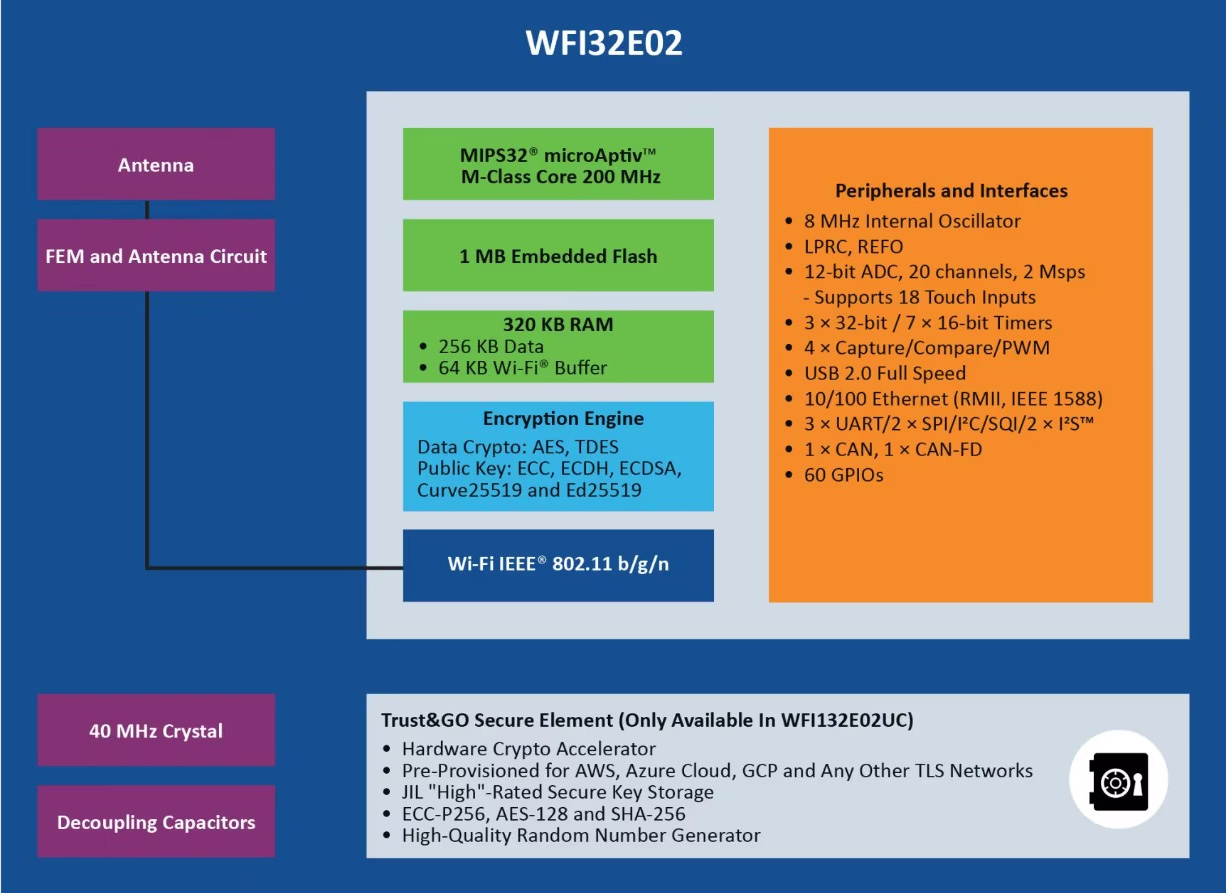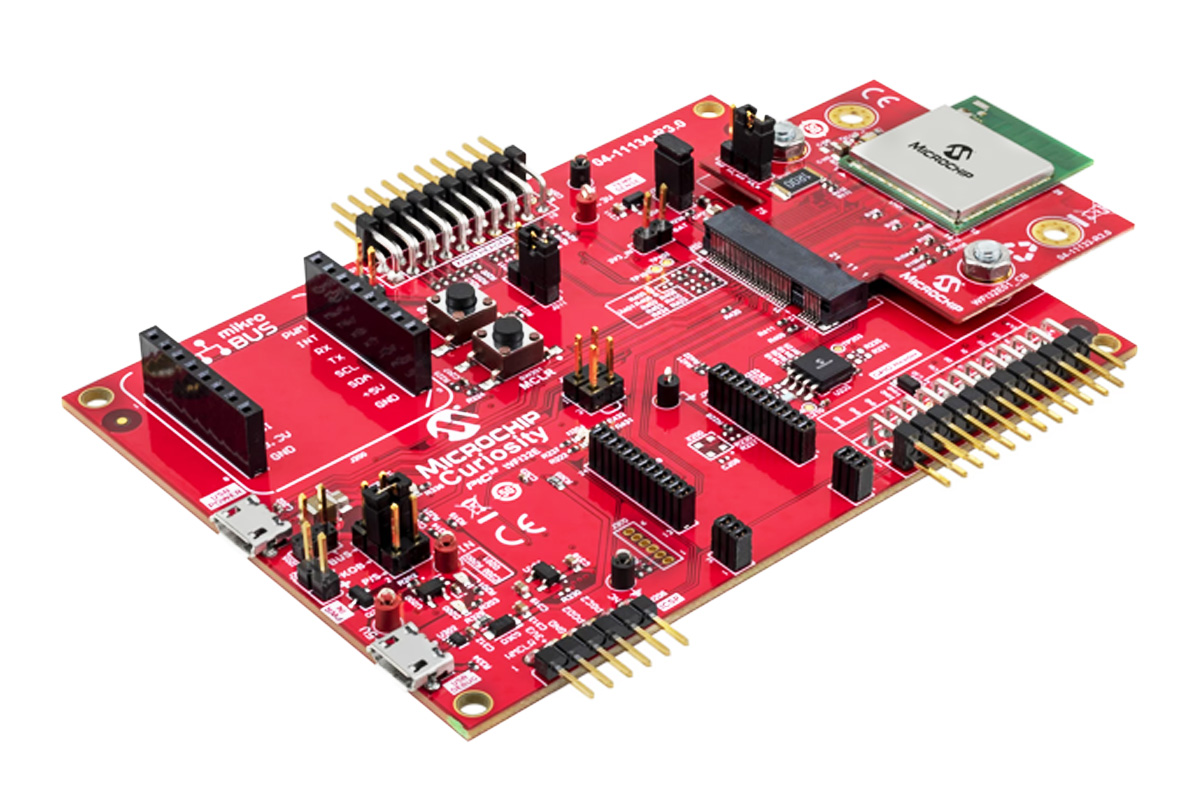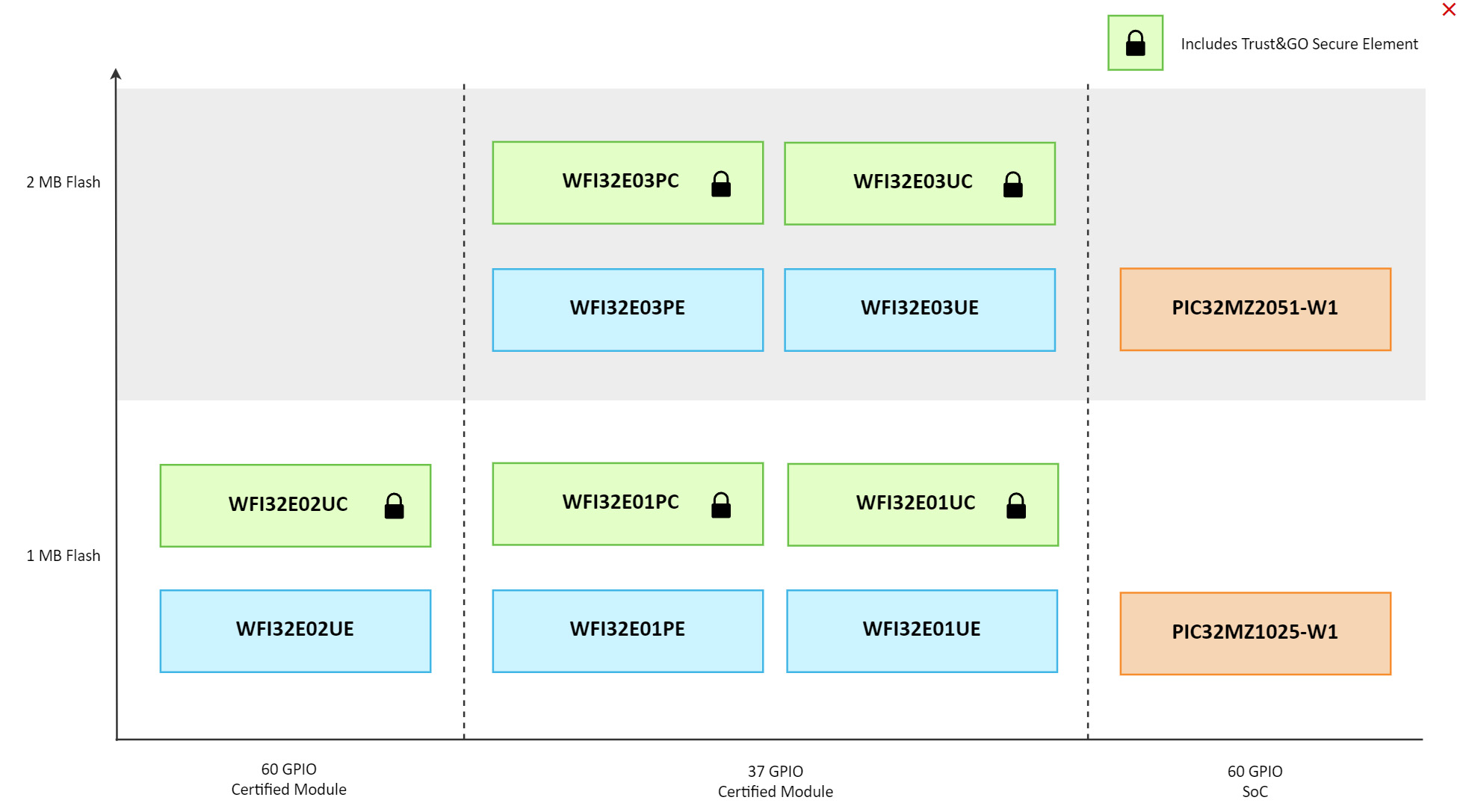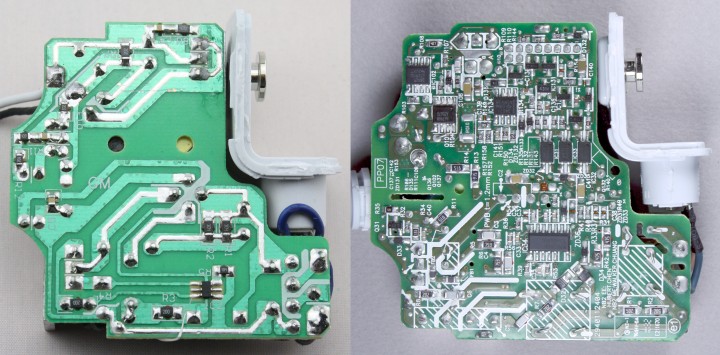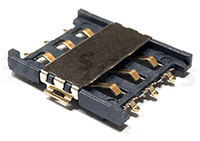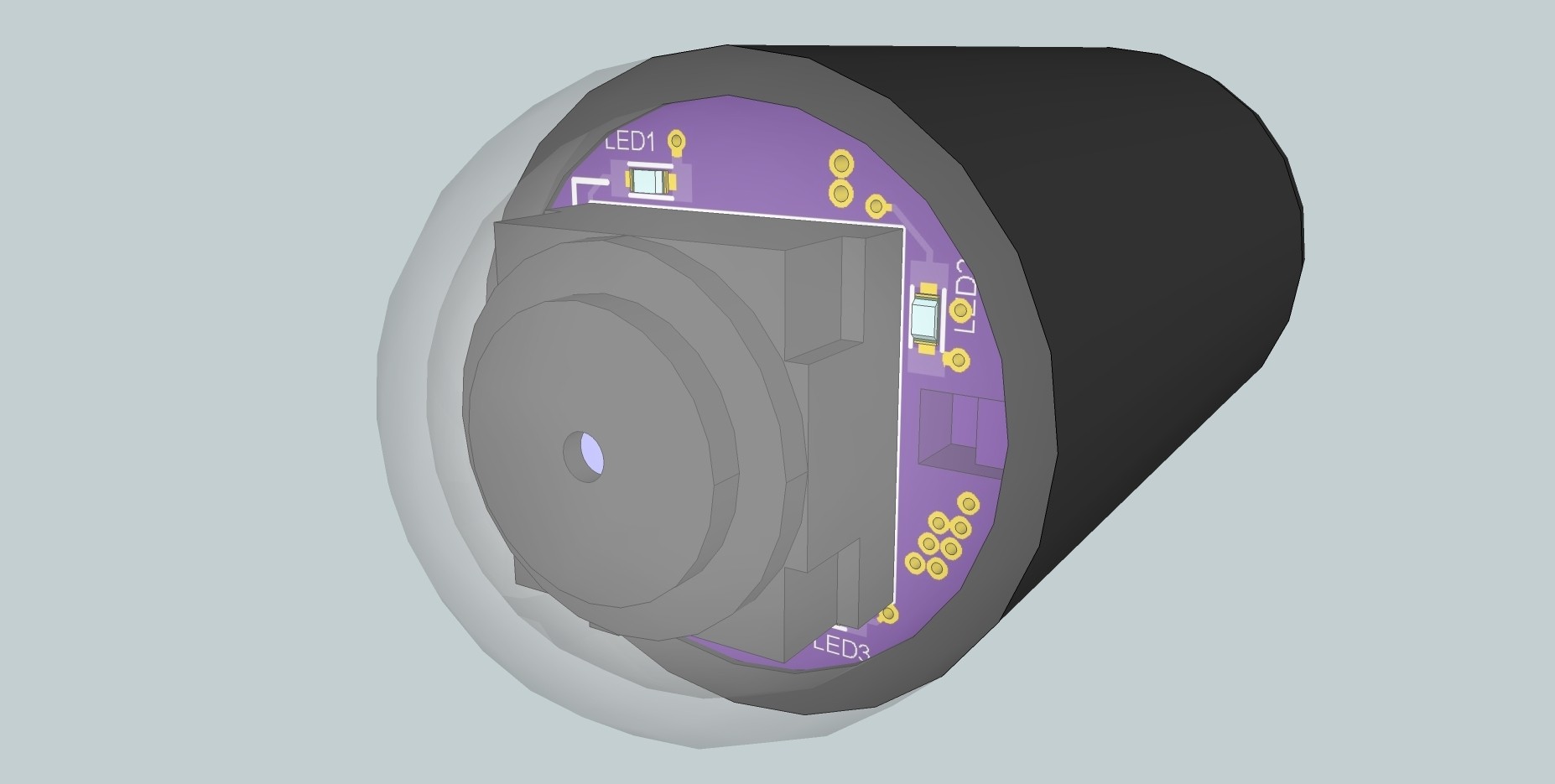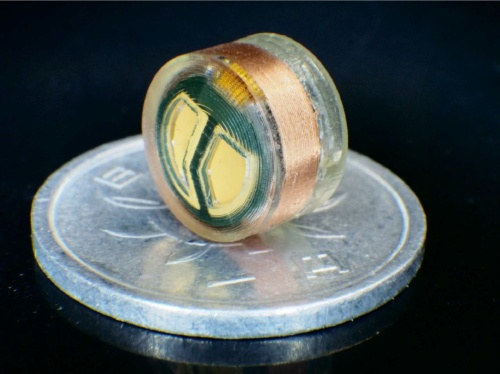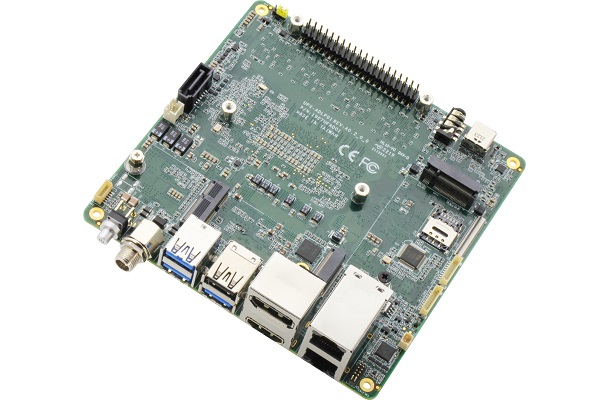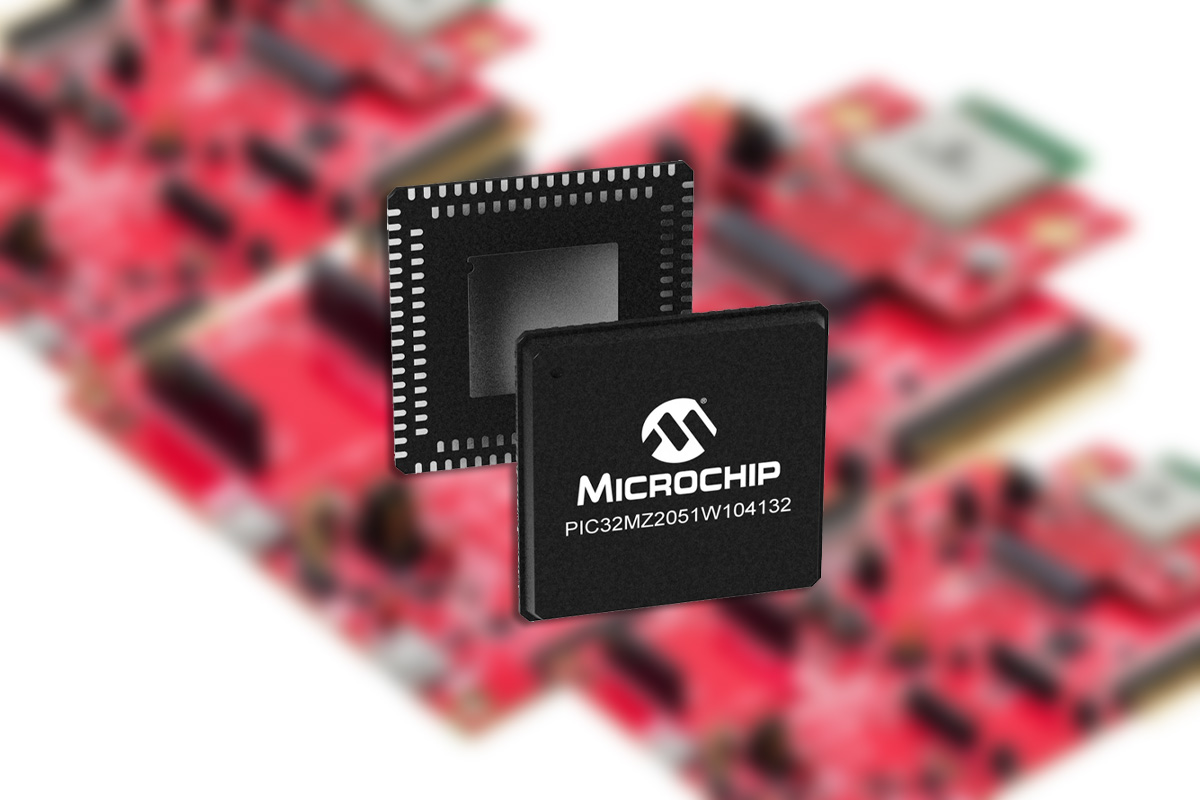
Microchip PIC32MZ-W1 Wi-Fi MCU Features 32-bit MIPS M-class core and comes with a dev board
Microchip has recently released the PIC32MZ-W1 Wi-Fi MCU along with 20 other wifi SoCs including link controllers, network controllers, and plug-and-play modules. The most important one among them is the PIC32MZ-W1 wireless MCU because of its 32-bit MIPS M-class core running at up to 200MHz. The SoC does not only have WiFi it also has various hardware security features and an integrated Microchip Trust Platform for secure cloud authentication.
The company has introduced two new development boards: the PIC32MZ-W1 and the WFI32 2.0 Curiosity Board, both based on the PIC32MZ-W1 wireless MCU. These boards feature a mikroBUS socket, an onboard PICkit programmer/debugger, and support Ethernet PHY daughter boards. The WFI32E Curiosity Board, using the WFI32E01PC module, offers additional GPIO pins, microphones, and certifications for Azure, AWS FreeRTOS, and Amazon Frustration-Free Setup. Both boards are designed for IoT applications, with cloud connectivity and voice control.
Microchip PIC32MZ-W1 Wi-Fi MCU Specification
- Processor:
- MIPS32 M-Class core @ 200 MHz
- 16KB I-Cache, 16KB D-Cache
- DSP extensions with 4x 64-bit accumulators
- microMIPS mode (up to 35% smaller code size)
- Memory:
- PIC32MZ1025W104: 1MB Flash, 64KB Boot Flash, 256KB SRAM
- PIC32MZ2051W104: 2MB Flash, 128KB Boot Flash, 512KB SRAM
- 64KB/128KB Data Buffer
- Wireless:
- Integrated 2.4 GHz 802.11b/g/n Wi-Fi
- Supports Infrastructure and Soft-AP modes
- WPA3 Personal (SAE, PMF-802.11w), WPA2, WEP support
- Connectivity:
- 1x Ethernet MAC (10/100 Mbps with RMII, PTP)
- 62 GPIO pins
- 12-bit ADC (2 MSPS, 20 channels) with touch sensing
- 2x CAN 2.0B with CAN FD
- 3x UART (up to 10 Mbps)
- 2x SPI (up to 40 MHz)
- 1x SQI (configurable as SPI)
- 1x USB 2.0 Full-Speed (Host/Device)
- 2x I2C (up to 1 Mbps, SMBus support)
- Timers/Counters:
- 7x 16-bit timers/counters (or up to 3x 32-bit)
- 4x Output Compare (OC) modules
- 4x Input Capture (IC) modules
- Security:
- Hardware-accelerated crypto engine (AES, 3DES, SHA, MD5, HMAC)
- Public key cryptography (ECC, ECDSA, Ed25519)
- True Random Number Generator (TRNG)
- Power:
- Operating voltage: 2.97V to 3.63V
- Ultra-low power in Extreme Deep Sleep:
- PIC32MZ1025W104132: 0.71 µA (typical)
- PIC32MZ2051W104132: 1.11 µA (typical)
- Debugging:
- MIPS Enhanced JTAG interface
- IEEE 1149.2 (JTAG) boundary scan
- Miscellaneous:
- Real-Time Clock and Calendar (RTCC)
- 8-channel DMA with automatic data size detection
- Programmable 32-bit CRC
- Peripheral Pin Select (PPS)
- Package:
- 132-pin DQFN (10 mm x 10 mm)
- Operating temperature:
- -40°C to +85°C
In terms of software support Microchip provides various software and tools to make the development process easier. The MPLAB Harmony v3 integrated software framework has libraries for TCP/IP, USB, graphics, and touch sensing. It also supports RTOS kernels like FreeRTOS and embOS and includes middleware for connectivity with services like Apple MFi and Android. Additionally, you can use the C/C++ compiler with native DSP and fractional math support, along with tools for over-the-air (OTA) firmware updates.
Other than the MCU and its associated dev board the company also released Plug-and-Play Wireless Modules with an embedded TCP/IP stack, Trust&GO secure element, integrated power amplifier, UART control, and global certification. They also provide the WINCS02 network controller, WILCS02 link controller, and corresponding development boards. Additionally, Microchip announced Wi-Fi front-end modules, power amplifiers, and low-noise amplifiers compatible with Wi-Fi standards (a/b/g/n/ac), ideal for IoT, access points, and industrial monitoring.
The PIC32MZ-W1 MCU is priced at $6.90 for single units, while the development board costs $84.00. For more details, including purchasing information and the datasheet, visit Microchip’s products page or refer to the press release.






